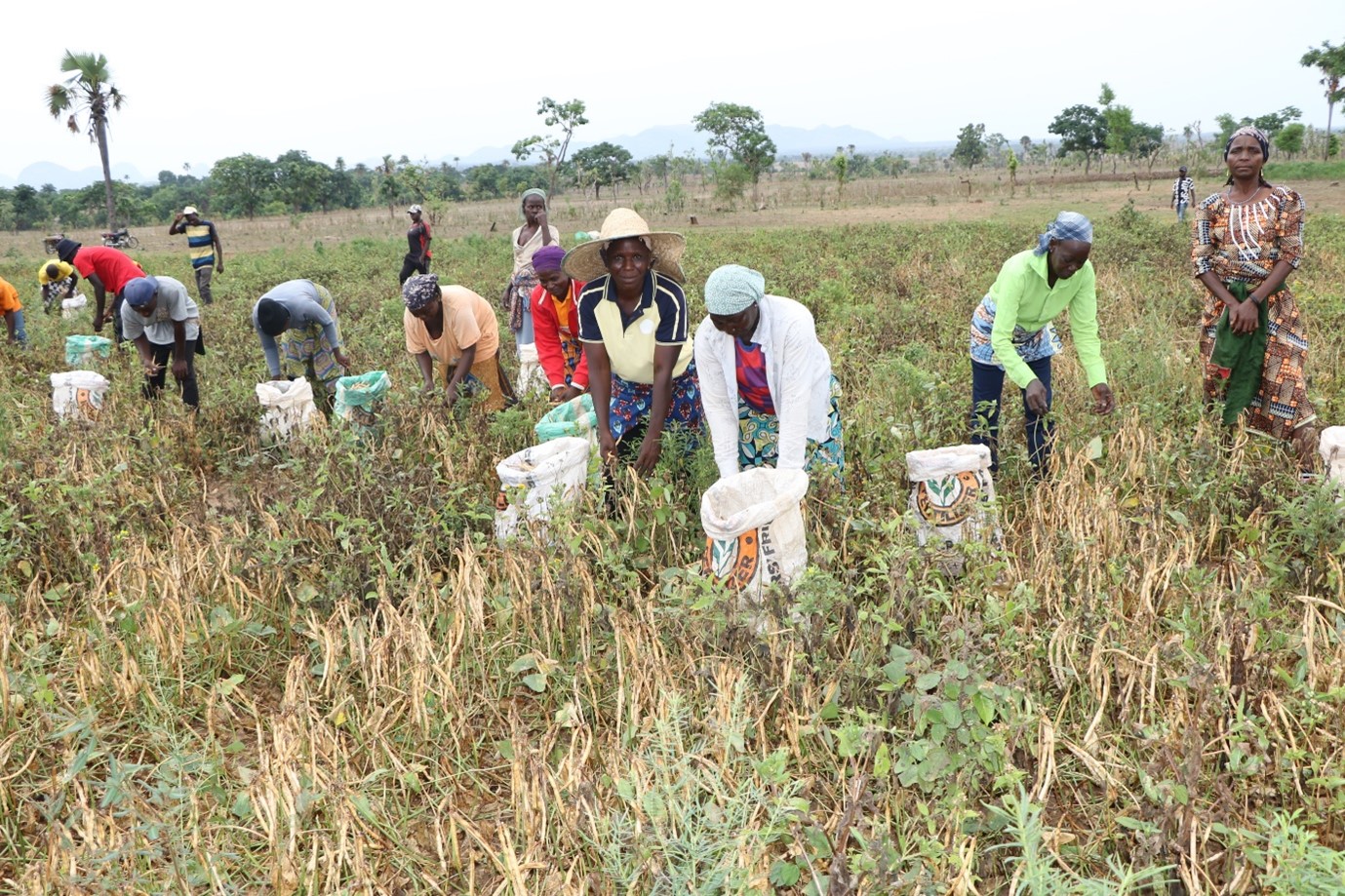
PHOTO: COURTESY AATF
By Alex Abutu
The success of Pod Borer Resistant (PBR) cowpea in Nigeria is an excellent model for replication in other West African countries. This success has shown that the adoption of genetically modified crop varieties could be a solution to the challenges facing smallholder farmers in the region.
West Africa is a region that heavily relies on agriculture Over 70 percent of the population is engaged in farming with cowpea as a staple crop. However, it is susceptible to the pod borer insect, which causes significant yield losses.
Thus the development and adoption of PBR cowpea varieties could be a game-changer for smallholder farmers in West Africa.
AATF coordinated the PBR Cowpea Project in three countries in collaboration with national research organizations to develop and release commercially viable and acceptable cowpea variety that is resistant to the notorious insect pest responsible for over 80 percent of the destruction on farmers’ fields.
Nigeria made history in 2019 when it released the PBR cowpea variety, Ghana followed in 2022 and Burkina Faso is in line for the next release of the variety.
To replicate the success of PBR cowpea in West Africa, there is a need for an expanded collaboration between governments and private sector players. Countries in the region could leverage the experiences of Nigeria in the development of the new varieties and tailor them to their local needs.
Additionally, there is a need for regulatory bodies to provide an enabling environment for the adoption of genetically modified crops. Stillto ensure the successful adoption of PBR cowpea in West Africa, there is a need for massive awareness creation on the benefits of the new varieties.
The Open Forum on Agriculture Biotechnology (OFAB) is already playing a significant role in the three countries in the region and with support their activities can be scaled to cover the entire region.
Farmers need to be educated on the advantages of PBR cowpea, such as the increased yields and reduced pesticide use. AATF in Nigeria collaborated with the National Agriculture Extension Research and Liaison Services to provide qualitative education and information to farmers on best agronomic practices that can maximize the full potentials of the PBR Cowpea.
It is essential to involve the private sector in the development and dissemination of PBR cowpea varieties. The private sector has a critical role to play in ensuring that farmers have access to quality seeds, training, and technical support.
Additionally, the involvement of the private sector could provide a market for the produce, thereby improving the farmersincome.
One of the key lessons from the Nigerian experience is the importance of involving farmers in the development and dissemination of the PBR technology. In Nigeria farmers were involved in the selection of the PBR cowpea variety and were trained on the best practices for planting and managing the crop.
This approach helped to build trust between the farmers and the researchers and it contributed to the successful adoption of the technology.
Another important lesson is the need to address any potential concerns about the safety of PBR cowpea. In Nigeria, the PBR cowpea underwent rigorous biosafety assessments before it was released for commercial cultivation. This helped to address any potential concerns about the safety of the crop and contributed to the success..
Replication of the success of PBR cowpea in West Africa is possible and is a major step towards achieving food security and sustainable agriculture in the region. However, there is a need for collaboration, awareness creation and involvement of the private sector to ensure successful adoption.
There is a need for collaboration between national agricultural research institutions, international research organizations and the private sector. This collaboration can help to adapt the PBR technology to local cowpea varieties, address regulatory and policy issues, and ensure the technology is accessible to smallholder farmers.
The success of PBR cowpea in Nigeria offers a blueprint for replicating the same success in other West African countries. Collaboration between national research institutions, international organizations, and the private sector, involving farmers in the development and dissemination of the technology, addressing biosafety concerns, and providing funding to support research and development, regulatory and policy reforms, and capacity building are critical to achieving this goal.
About AATF:
AATF is an international not-for-profit organization that is empowering smallholder farmers across Sub-Saharan Africa with a wide choice of agricultural innovations that contribute to food and nutrition security to generate health and wealth for their families and communities. Established in 2003 as an African-led entity, AATF works with public and private partners across the full food value chain to access, develop, deliver and commercialize innovative technologies that bring meaningful change to Africa’s agriculture. AATF is driven by a vision of a prosperous and food secure Africa, one where millions of smallholder farmers can transform African agriculture with the same innovations that are transforming food production around the world. AATF believes the farmers in Africa will become globally competitive through use of the best technology, optimal agricultural practices, strategic product value addition and boosted access to efficient markets within and outside Africa.







































































